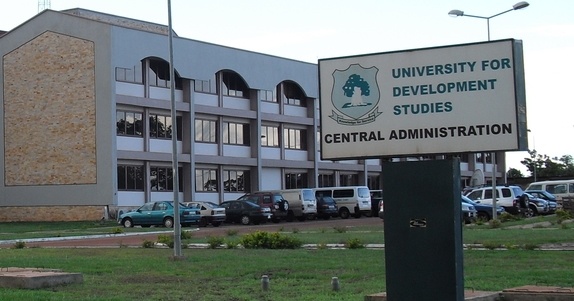The Faculty of Biosciences of the University for Development Studies (UDS) has held its 13th Bioscience Discourse with a call for support to develop and commercialise biofuel production.
Biofuel, obtained from plant or algae material or animal waste, could become a viable alternative fuel to compliment and diversify the country’s energy mix, if promoted, says the university.
The Northern Region which is a hub of agricultural activities is home to lots of raw materials for its production. Shea nuts, millet and maize husks among many others are some of the readily available raw materials suitable for biofuel.
With the given, the school is confident that with the right funding, it can transform these by-products into useful and cleaner energy to compliment existing fuel sources.
This follows a research by a senior lecture of the Faculty of Biosciences, Dr. Abraham Kusi Obeng, which confirmed the huge potential for biofuel production.
The research dubbed “unlocking the potential of lignocellulosic biomass for production of liquid biofuel”, found out that cellulosic materials were not easy to be extracted as compared to sugar cane processing.
In view of this, the team was able to develop protocol to extract the sugars for further processing to be fermented into bio ethanol.
The investigation was aimed at identifying opportunities within agricultural waste products and the need to utilise them to augment the country’s energy needs, particularly in this era of high fuel prices.
The Faculty, since its inception, has been embarking on research exercises to identify problems and opportunities in various fields as well as solutions to them. However, financial and logistical constraints remain major hindrances.
The research lead for the biofuel project, Dr. Kusi Obeng, told the B&FT that the essence of the investigation was to identify alternative sources of energy
He said the research discovered that non-food component can be used for biofuel. He, however, added the school lacks funding to be able to fine-tune the investigations and possibly commercialise the findings.
He therefore urged the government and the private sector to support the faculty to actualise the research findings.
“Our major challenge to help harness the potential is equipment, so if government or corporate organisations could assist us, everything would be done here to create job opportunities for our youth,” he said.
He also noted that it is very expensive to carry out such research works because some of the chemicals are imported, while the results have to be sent to other countries for verification.
“We are open to collaborating with industries that are into ethanol production,” he added.
Dr. Francis Addy, a senior faculty lecturer and chairperson for the event, commenting on the findings, said it has come at the right time, as the country looks to diversify it energy mix.
According to him, unlike conventional ethanol production from the Western world, the research is focused on the use of by-products from agriculture sector, which the country has in abundance.
The Vice Dean of the Faculty, Dr. Nelson Opoku, noted that the Faculty has been training graduates to venture into research so as to assist government and the private sector in building a resilient economy.
The event, he noted, aims to expose the Faculty through research, adding: “What we have realised is that most often when members of the Faculty conduct research, they are left on the shelves due to lack of funds, hence this discourse”.
EDITED










